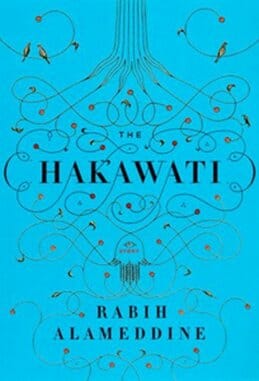Master storyteller takes us on a magic-carpet ride
Listen. Allow me to be your god. Let me take you on a journey beyond imagining. Let me tell you a story.
So begins Rabih Alameddine’s mesmerizing epic tale of war and peace, Lebanon and America, family and friendship, love, death, revenge and the life-giving power of story—with an implicit promise that’s almost impossible to deliver. How could a story that has been imagined and written down and published be beyond imagining?
Trust me: This one is.
Alameddine’s book is sui generis, and as soon as you finish it, and all its multiple narrative threads have woven themselves together—like a magic carpet transporting you to a place where fables and history, weddings and funerals, murder and sacrifice, people so real you can almost touch them, and jinnis and witches and beys and imps and prophets who take the form of parrots coexist—you think, ‘Did I just read what I think I just read?’
More than any book in recent memory, The Hakawati, is—at its very big heart—all about the importance of telling stories, and it can be reviewed more appropriately with a story than a report or analysis. So let me tell you a story.
Two-and-a-half years ago, I was one of a group of authors invited to spend Thanksgiving night at a chateau just south of Paris. Part of The DaVinci Code was filmed there—this was after the filming but before the movie came out. The book was still dominating the bestseller lists, angering the Vatican and inspiring Parisian churches to put up multilingual signs in their vestibules explaining that none of the events in the novel had actually occurred, and especially not in their church, all of which made the fact that the movie was filmed there seem more exciting.
We loved the irony that the churches were essentially telling tourists, ‘Stories are just that—stories. Fiction isn’t real.’ We all knew what these churches had temporarily forgotten: Just because something didn’t happen doesn’t mean it’s not real, doesn’t mean it doesn’t have the power to shape people’s lives and souls and perceptions of the world. (Not that we believed The DaVinci Code. Think metaphorically.)
The chateau was movie-set gorgeous but unheated. We had a hostess whose preferential treatment depended on whether one was rich, famous, clad in Versace, sporting implants or dating someone who fit that description.
I found myself next to the fire with this young writer, Rabih Alameddine. We talked, and I remember saying, “But how does she know I’m not rich or famous? I’m wearing a Prada top! And yes, I got it off eBay, but she doesn’t know that!”
The writer just looked at me, rolled his eyes, and said in his Lebanese accent, “Darling, she can smell eBay.”
This is vintage Rabih. And his quip points the way into The Hakawati, which is all about reading the unwritten codes that make a person valuable to him/herself and others, discovering what’s true about identity, and what role story plays in creating reality.
At the center of this novel is an Americanized Lebanese man returning to his home country for his father’s death. His father was a hakawati—a great storyteller—and woven throughout the novel are his legends, adventures, tragedies, romances and histories. It’s a 1,001 Nights whose stories attempt to keep a dying father alive, whose stories bring back to life a mother, an uncle, a brother-in-law soldier and a host of villains, victims and vamps. It’s also funny and heartbreaking, with an ending that turns the novel on its head, transforming the central character and giving new provenance to every detail.
Every so often a novelist finds an audience; a Hakawati enchants his listeners and attracts more. Enter Alameddine.
You know how it works: You get your friends to blurb your books. I know of at least two friendships that were destroyed because a writer refused to blurb a friend’s book. So you generally take blurbs with a grain of salt. But in this case, you can believe Amy Tan’s blurb on this book’s cover: “Rabih Alameddine is the Hakawati, and in the very near future, everyone will know how to pronounce his name.”
It’s like Robbie, or halfway between Robbie and Rabbie. Don’t even try his last name. Or you could just call him “Darling” (pronounced Dahling), as in, “It’s a work of genius, Darling. Pure genius.”
Elizabeth Dewberry is the author of four novels: His Lovely Wife, Sacrament of Lies, Break the Heart of Me and Many Things Have Happened Since He Died. She lives in Atlanta.
